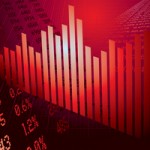 The ETF, or exchange traded fund, is a fairly new type of investment product. It holds stocks, bonds, commodities or other types of assets and sometimes tracks an index like the S&P 500. It is similar in structure to a mutual fund, yet is traded on a stock exchange.
The ETF, or exchange traded fund, is a fairly new type of investment product. It holds stocks, bonds, commodities or other types of assets and sometimes tracks an index like the S&P 500. It is similar in structure to a mutual fund, yet is traded on a stock exchange.
ETFs usually include investments that are grouped under some sort of common theme. It could be top performers in a given industry, those listed on various indexes, or up and coming stocks from a certain market sector. These investments often look quite attractive at first glance, but they’re not right for every investor.
Here is some advice to consider about ETFs before you part with your money.
ETFs are actively traded. This simply means that they are traded throughout the day, unlike mutual funds, which are only priced and traded at the end of the trading day. For active investors, this is a good thing.
ETFs are sold to the public in single shares, whereas mutual funds and index funds require a higher initial investment. This makes them accessible to those who do not have a large amount of money to invest.
When you trade ETFs, you have to pay your broker a commission just like you would if you were trading a stock or a bond. However, those who are familiar with stock trading can trade through a discount brokerage, which charges much lower fees than a full-service brokerage.
Due to the trading costs, ETFs are best suited to investors who have at least $10,000 to put into them. But for those who plan to make their purchases and refrain from trading for several years, they can work out nicely.
The risk of an ETF is dependent upon what it is made up of. Stock and real estate ETFs can be rather risky, while bond ETFs are more stable. United States ETFs tend to be more stable than international ones. As with any type of investment, it’s important to diversify when dealing with ETFs.
ETFs haven’t been around very long. That means that there’s no data on their long-term performance. For investors with a low tolerance for risk, the thought of investing in a product with such a short track record may not sit very well.
ETFs are not insured by the FDIC. Many other investments are. For investors that don’t want to risk losing their money, a secured investment would be a safer bet.
ETFs work out very well for some investors. For others, they’re just not a good match for their goals and trading styles. Before you purchase shares in an ETF, ask yourself if you’re prepared to handle the inherent risk, and if you plan to trade actively or hang onto it for a while.
 The ETF, or exchange traded fund, is a fairly new type of investment product. It holds stocks, bonds, commodities or other types of assets and sometimes tracks an index like the S&P 500. It is similar in structure to a mutual fund, yet is traded on a stock exchange.
The ETF, or exchange traded fund, is a fairly new type of investment product. It holds stocks, bonds, commodities or other types of assets and sometimes tracks an index like the S&P 500. It is similar in structure to a mutual fund, yet is traded on a stock exchange.
